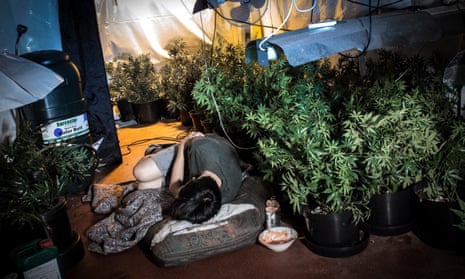A high court judge has ruled that Home Office policy to cut off all statutory support to people six weeks after they have been formally identified as victims of slavery is potentially unlawful, ordering that assistance must immediately be extended.
All statutory support under the Modern Slavery Act, such as safe housing, counselling and financial support, currently ends 45 days after the Home Office has informed someone they have been officially recognised as a victim.
This week, two slavery victims won the first stage of a legal challenge they had brought against the Home Office, when a judge in the Birmingham administrative court agreed the existing rules could be unlawful.
The High Court ordered the Home Office to extend interim support to all slavery victims over the 45-day threshold until the next hearing in the case, which takes place on 14 April.
Law firm Duncan Lewis said that if their clients’ legal action is ultimately successful, it would require the Home Office to provide indefinite specialist support for as long as victims required it while they were in the UK, or until they received leave to remain.
“At the moment we have 14 or 15 clients who have gone through the often very traumatic process of being identified as a victim of slavery, which can often take months, and then six weeks after they get this decision are told that all their specialist support is ending, they must leave their safe house accommodation, and will no longer have contact with their support worker,” said Ahmed Aydeed, public law director at Duncan Lewis.
“This is not only incredibly traumatising for people who have already suffered horrendous exploitation and psychological abuse in the UK but also puts them at an enhanced risk of being re-trafficked. The government is failing in its legal obligation to support victims of modern slavery.”
Frontline service providers and anti-slavery campaigners have long argued that the policy of terminating support shortly after identification can push vulnerable victims into destitution, homelessness and back under the control of traffickers and exploiters.
One of the victims bringing the judicial review against the government was trafficked into cannabis cultivation and was subsequently criminalised and illegally detained in prison and immigration removal. In a witness statement presented to the court, he said that if his support ended after 45 days he would be homeless and unable to attend medical appointments without the backing of a support worker.
The other, an Albanian woman who was trafficked into sexual exploitation, said: “I am scared that I will have a mental breakdown and that will affect my ability to care for my daughter.”
The government meanwhile continues to debate legislation on modern slavery in the UK. A private members’ bill, proposed by Lord MCColl of Dulwich, is also due to be debated. The bill calls on greater support for victims of slavery, including statutory support for up to a year after identification.
